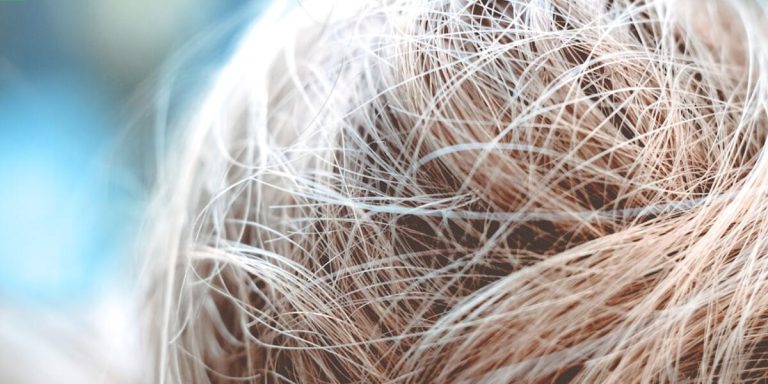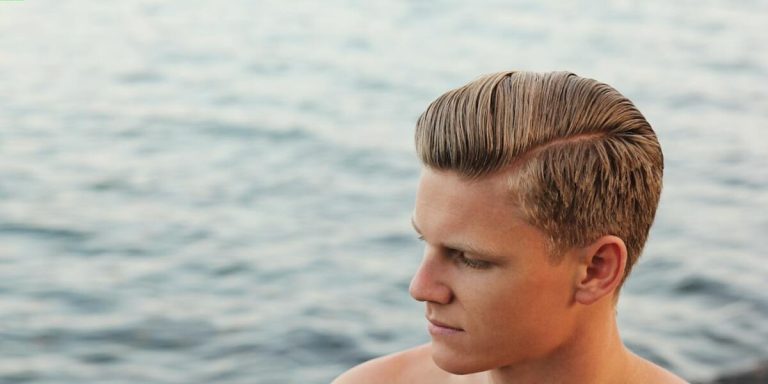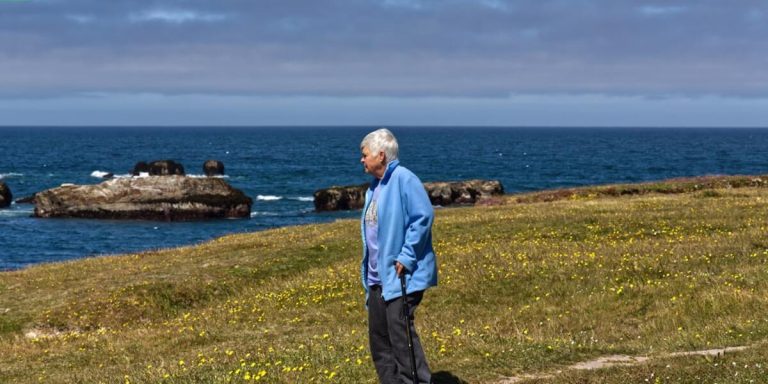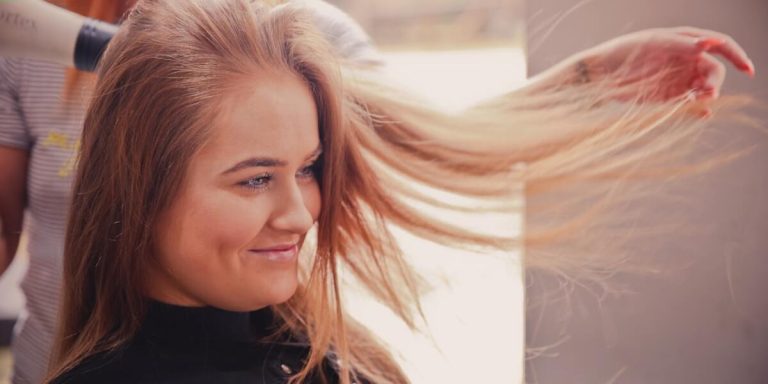Lack of What Vitamin Causes Hair Loss: Decoding the Nutrient Connection
When it comes to understanding the intricate battle of hair loss, one key factor often overlooked is nutrition. Specifically, a question that frequently arises relates directly to dietary deficiencies – “lack of what vitamin causes hair loss?” With so many vitamins and nutrients playing vital roles in our body’s functioning systems, pinpointing exactly which deficiency could be leading to your unwelcome hair thinning can seem like an overwhelming task.
This blog aims not only at answering this seemingly complex query but also explaining how various nutritional elements interconnect within our bodies contributing towards overall health and wellbeing including the healthy growth cycle of our tresses. The nutrient connection with regards to thinning locks isn’t solely about lack; sometimes excess intake can equally prove problematic indicating just how delicate a balance we need when addressing diet related issues concerning hair fall.
Did you know?
A surprising fact is that Vitamin D deficiency not only affects bone health, but it also plays a crucial role in hair loss. Low levels of this nutrient have been found linked to alopecia areata, an autoimmune condition characterized by severe hair fall.
Understanding Nutritional Deficiencies and Hair Loss
A common cause of hair loss, often overlooked, is nutritional deficiencies. Among various nutrients required for a healthy body and mind, certain vitamins play an integral role in maintaining strong and vibrant hair – deficiencies can lead to weakening strands or even severe hair loss.
One might wonder which specific vitamin affects our crowning glory? The answer lies with Vitamin D – this powerful nutrient has been linked directly to the health and strength of your follicles. A deficit may not only impede new growth but also contribute significantly towards excessive shedding or balding.
Research suggests a clear connection between lack of sunlight exposure, our main natural source for Vitamin D, and non-genetic related forms of alopecia. Countries receiving less sunshine have reported higher instances of such cases, underlining the importance of sunlight.
In 2023’s fast-paced life, with increasing indoor activities due to technological advances and ongoing pandemic conditions worldwide, people need to balance their dietary intake cautiously to offset shortcomings from other sources.
The Link Between Vitamin Deficiency and Thinning Hair
A healthy diet ensures your body gets a variety of nutrients, including the necessary vitamins needed for hair growth. However, if you face persistent thinning and shedding of strands or see bald patches irregularly appearing on your scalp, it may signal that you’re experiencing certain nutritional deficiencies.
People often ask, “Which vitamin deficiency causes hair loss?” Vitamins A, B complex (particularly B-7 or biotin), C, D, and E are crucial for maintaining voluminous and lustrous locks. Here’s how lacking each one can lead to hair damage:
1) Vitamin A – It promotes cell development inclusive of those involved in growing new follicles. Shortage in this vitamin might cause both reduced growth rate and heavy fall-outs.
2) Complex-B Vitamins – Especially Biotin contributes significantly towards strengthening our keratin infrastructure which makes up the primary building block for hairs.
3) Vitamin C – Antioxidants like these help protect against free radical harm that hampers circulation to our scalps leading primarily to weak roots unable ultimately causing them to shed off easily.
4) Vitamin D – The ‘sunshine’ nutrient produces hormones balancing out the peculiarities during elongation cycles; hence lack thereof frequently results due disordering stages i.e., anagen (growth phase), catagen (transitional stage), telogen(resting period).
Essential Vitamins for Hair Growth: What You’re Missing
The first on our list is Vitamin D, known as the ‘sunshine’ nutrient because your body typically produces it in response to sun exposure. In 2023’s stay-at-home lifestyle with reduced outdoor activities during daylight hours – people are getting less sunlight than before which equates to lesser Vitamin D production leading to its deficiency.
Next is Biotin or Vitamin H (part of the complex B Vitamins), important for converting specific nutrients into energy while playing an essential role in maintaining healthy skin cells including those found on your scalp and hairs.
Other vital members we cannot forget from this group include Niacin (Vitamin B3) that aids cell development process and boost blood circulation around scalp region; Folic Acid (B7) helping DNA synthesis crucial for tissue growth like nails and hairs; Lastly Riboflavin(B2) & Pyridoxine(B6); both contributing towards stimulating red blood cell generation resulting better oxygen distribution across body parts – yes including your precious locks!
Investigating Common Culprits Behind Hair Loss
Hair loss can be a distressing experience, yet it is far from uncommon. In fact, several factors contribute to this predicament, one of them being vitamin deficiency. As we delve deeper into the common culprits behind hair loss in 2023, our focus narrows onto vitamins – essential micro-nutrients that play key roles in maintaining overall health and specifically, improving hair growth.
Understanding which vitamins affect your mane’s well-being could unlock potential solutions for tackling hair fall issues effectively. Of all micronutrients linked with healthy tresses, certain ones emerge more crucial than others when dealing with thinning strands or bald patches. It isn’t unheard of for severe deficiencies in specific types like Vitamin D or Biotin (a type of vitamin B) leading to increased weakening and shedding patterns over time.
Unraveling these connections reminds us why balanced nutrition should hold an undeniable place in our daily regimen if retaining voluminous locks remains on top of personal wellness goals list. Recognizing ‘lack of what vitamin causes hair loss’ will steer you towards adopting mindful consumption practices ensuring your body gets ample nourishment needed for robust follicles and vibrant looks.
Hormonal Imbalances Impact on Follicle Health
Hair loss isn’t just an issue of aesthetics. It often signals a deeper problem within the body, and hormonal imbalance is one such culprit that frequently goes unnoticed. Hormones play a vital role in regulating hair growth cycle, but when they’re out of sync, it can wreak havoc on your follicles’ health.
One possible cause for this imbalance could be due to endocrine disorders such as hypothyroidism or Polycystic Ovary Syndrome (PCOS). Women with PCOS may notice thinning hair due to higher levels of Dihydrotestosterone (DHT), which shortens the life span of scalp’s follicles leading to baldness.
In men too high testosterone level leads to excessive production DHT resulting into male pattern baldness . This scenario demonstrates how crucial hormones are even down at cellular-level in our bodies- we simply cannot ignore them!
Stress represents another significant factor causing hormone-induced hair loss since chronic stress destabilizes our hormonal balance by elevating cortisol levels’s negatively impacting overall health including head full locks!
The Role of Stress and Environmental Factors in Losing Hair
Environmental stressors and emotional turmoil often play unexpected roles in the loss of hair, with certain vitamins acting as potential safeguards. Among these protectors are essential vitamins whose deficiencies might lead to significant hair thinning or even baldness.
Firstly, let’s unravel the connection between our stressful lives and hair issues. A sudden or chronic surge of stress can shock your follicles into a resting phase called telogen effluvium; this means fewer hairs grow while more shed than normal. Stress also pushes your body towards inflammation which could further hinder healthy growth.
Amidst constant deadlines, pressures from work or home situations may contribute to poor dietary habits depriving us necessary nutrients including vital Vitamins such as Biotin and Vitamin D – lack of either has been linked directly to hair loss symptoms.
Unstable environmental factors influence hair loss. Changeable weather conditions affect both our wardrobe choices and daily hair retention. Sun exposure degrades proteins that strengthen each strand and reduces hydrating oils on the scalp, leading to breakage. Conversely, extreme cold stiffens the hair, making it brittle and prone to breaking off easily when brushed or combed through hastily—resulting in damaged split ends that turn our crown of glory into a frizzy nightmare.
Strategies to Combat Vitamin-Deficient Hair Loss
Uncovering the silent assassin behind your declining locks can be quite a challenge. One of them could very well be Vitamin deficiency, a seemingly harmless factor that is often underestimated in its potential for upheaval.
A vitamin-deficient lifestyle impacts more than just general health; it directly affects hair growth and strength too. Hair loss mainly attributed to deficiencies requires additional attention as we uncover what vitamins are key culprits in this battle against baldness.
Vitamin D, usually sourced from sunlight exposure, remains one of the primary elements linked with hair loss conditions. A scientific study published by Stem Cells Translational Medicine found that Vitamin D helps stimulate dormant follicles – those tiny pores where new hairs grow out but might have stopped due to lack of nutrients or age-related factors. Henceforth when there’s a dearth of this essential vitamin, don’t wonder why strands decide on an exodus!
Other notable mentions include B Vitamins like Biotin (B7), necessary for producing glucose and breaking down proteins into amino acids –the building blocks for your hairs’ defined structure while Niacin (B3) promotes healthy scalp circulation and rejuvenated hair growth!
So next time you notice alarming fallouts during combing or shower sessions remember- it may not always point towards hormonal imbalances or genetic predispositions alone! So hold off blaming solely on stress-related matters too early because lurking among apparent causes; Insufficient intake of vital vitamins plays an under-the-radar role contributing substantially towards unwelcome shedding.
Integrating Supplements into Your Diet for Healthy Locks
Vitamin deficiencies often lead to hair loss. Knowing the specific type of vitamin deficiency that causes this can be instrumental in tackling it effectively. One question asked by many experiencing this issue is, “lack of what vitamin causes hair loss?” The answer points towards several vitamins such as Vitamin D, B-vitamins especially B7 (Biotin), and E.
Let’s explore how to incorporate these essential vitamins into your diet with supplements for healthier hair.
1. **Vitamin D:** Exposure to sunlight allows our bodies to produce Vitamin D naturally but modern lifestyles may reduce outdoor time leading to a lack of sufficient Vitamin D synthesis. Including fortified foods like cereals and fatty fish in your regular meals complemented with daily dietary supplements containing around 600-800 IU of this vital nutrient will aid its function which promotes new follicle growth.
2. **B-Vitamins**: This group has numerous members each carrying out unique roles including maintaining healthy RBCs (Red Blood Cells) which transport oxygen and nutrients through the scalp nourishing hair follicles promoting stronger strands resistant against breakage or fall-out due to malnourishment or anemia-related issues associated with iron-deficiency one amongst other variants where using Iron-B-complex supplementation implementation would prove beneficial.
Balancing a Wholesome Diet with Key Vitamins for Scalp Nourishment
Our bodies convey distress signals in various ways, one of which involves the health status of our locks. When we experience hair loss or thinning, it’s often due to a lack of essential vitamins and nutrients necessary for strong follicles and strands growth.
Vitamin A plays a major role in cell reproduction; its deficiency could stagnate new cells’ production responsible for generating healthy shiny-looking strands from your roots up towards their tips.
Your body needs Vitamin D to absorb calcium effectively – another vital element supporting great scalp conditions facilitating sturdy strand formation.
Biotin contributes largely to turning food into energy but is also fundamental when aiming at preventing brittle frail hairs from shedding off prematurely while ensuring they remain resilient against potential damages over time.
Iron carries oxygen through our blood system leading directly towards every single part on us – including the scalps! Without enough iron supply high chances you’d end up facing severe cases with balding spots here there intensifying daily stress levels even more so than before!
Conclusion
In the end, understanding the connection between nutrient deficiencies and hair health is crucial. The question – “lack of what vitamin causes hair loss” indeed holds a key to healthier locks. Remember, your mane needs more than just shampooing and conditioning; it demands nutritional balance as well.
Don’t let an imbalanced diet sabotage your efforts towards luscious tresses! Explore our website for more informative posts on various ‘Hair Loss Causes’. Knowledge empowers you in this journey against unwanted hair fall or thinning strands!
Your quest for healthy tresses could start with changing merely a few dietary habits.







